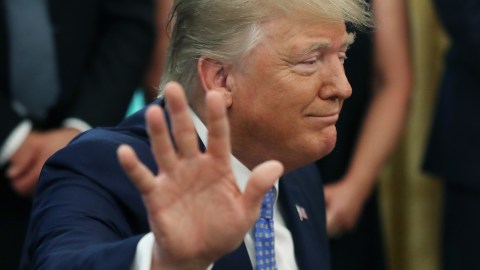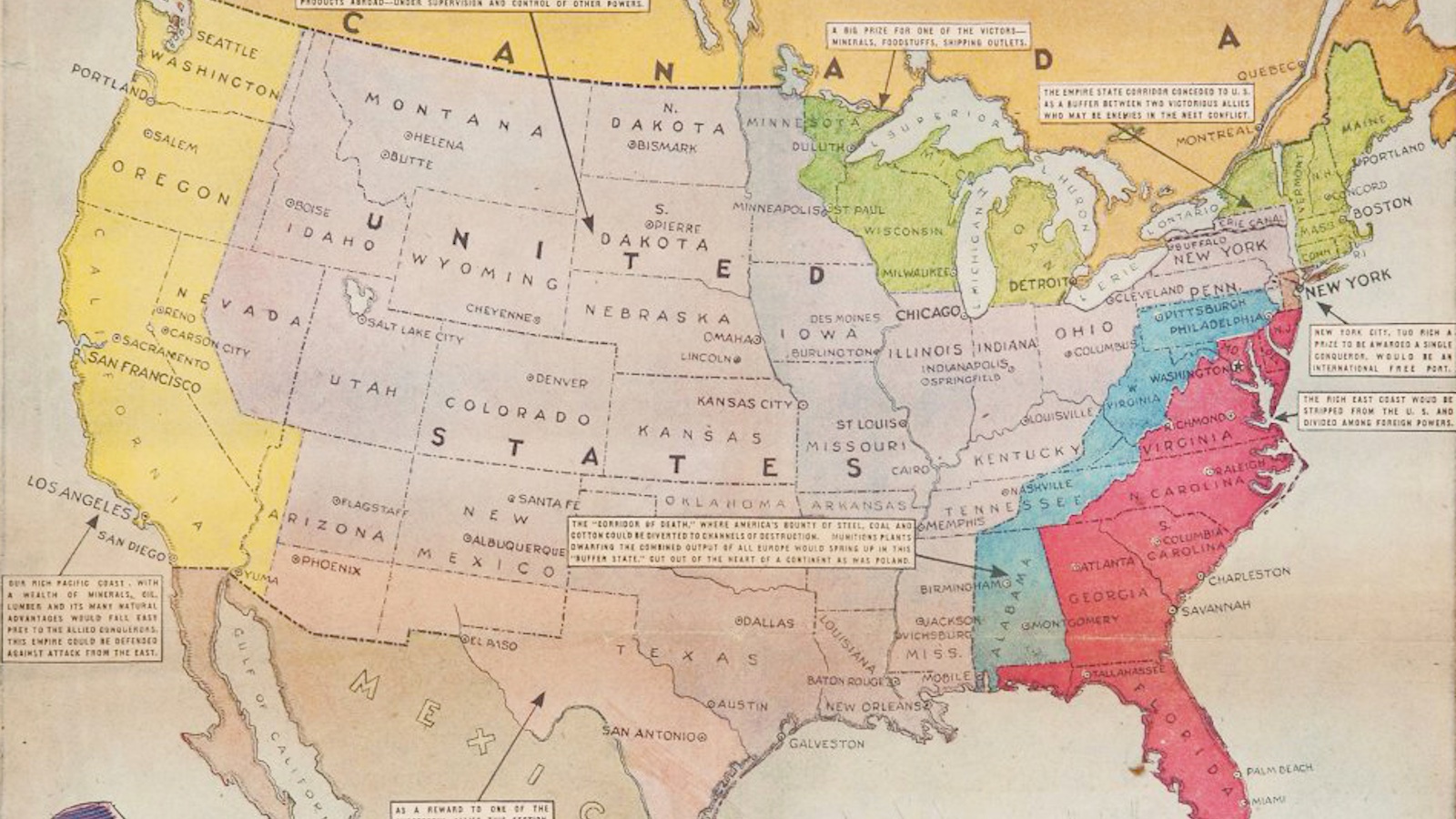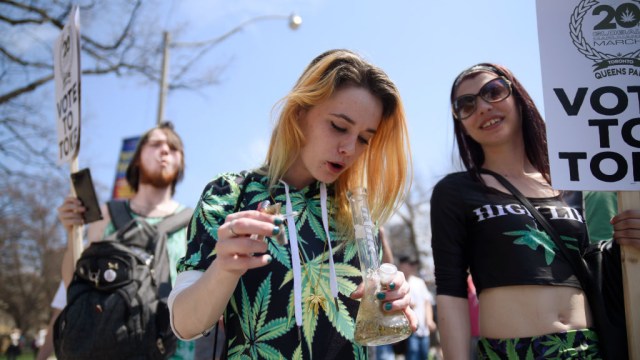Do newspaper presidential endorsements matter anymore?

Photo credit: Mark Wilson / Getty Images
- Lots of newspapers endorse presidential candidates, but the practice has been questioned in recent years.
- Perceived bias is a big part of the recent decline of trust in media.
- One study found endorsements can change people’s minds, but only under certain circumstances.
Endorsements are an often-contentious part of the increasingly endless American election cycle. Most significant organizations of every kind give them out; including unions, business groups, civic groups, political action groups, and, of course, newspapers.
While it seems evident that the first few groups would be interested in endorsing candidates, it’s less clear why newspapers would.
Why do newspapers make endorsements at all?
Consider it; it’s kind of weird that newspapers endorse candidates at all. The rest of the time they report the news and maybe print a few opinion pieces, all the time claiming objectivity and neutrality. Then, every few years, they take up at least a full page to explain why they think you should vote for a particular person. Why does anybody do it?
If you ask a dozen editors that question, you’ll likely get a dozen different answers.
Robert Greene of the Los Angeles Times told NPR that endorsements could serve as a statement of transparency and as a capstone to editorials on the various policy issues given before that point:
“Well, I think expressing your opinion is in some way an expression or a demonstration of transparency. The idea that on the editorial page is that after writing editorials about particular issues as they arrive and about candidates as they arise, that you don’t also come to a conclusion about if you were going to vote which one you would vote for. I think it’s a little disingenuous to say that you haven’t reached that opinion. And if you’ve reached such an opinion, just in the interests of transparency, I think it’s a good idea to express it and then to put it in front of the readers and see if they believe that you have justified that opinion properly.”
Jeff Cohen of the Houston Chroniclesuggested that endorsements are a vital part of the debate:
“We endorse candidates because most contemporary newspapers feel it is part of our public service mission even if some readers disagree with our point of view. We believe it is paramount for the community and electorate to be engaged and strongly advocate for participation. We think that editorial endorsements help provoke higher thought and cognition and is a motivation to partake in democracy.”
Chuck Plunkett of the Denver Post appealed to history when justifying endorsements:
“The idea of that tradition that if you’re going to go to the trouble to have a printing press and a newsroom and put your message out and try to cover public policy, then you also have the right as the owner of that paper to express your opinion. That’s how an editorial page got started to begin with, in trying to make arguments that would be good for society. The reason we do endorsements is because we’re trying to help people understand complicated political questions. Whether that’s a candidate, as in a presidential endorsement, or an issue, like a ballot issue, where the devil is in the details.”
Despite these lines of reasoning, some major newspapers have ended the practice. David Haynes of the Milwaukee Journal Sentinel explained why his paper stopped endorsing candidates to NPR:
“. . . it really boils down to this notion of independence. We work very hard each day to provide a balance of views on our pages and on our website increasingly and mobile devices as well. And we work hard to be open-minded and approach issues that we’re going to editorialize on independently. We pull good ideas from both major schools of political thought, and we’re pragmatic. We back ideas we think will work. Ideology is really immaterial.
So then, we do all that for 364 days of the year and turn around and choose sides in a bitter partisan election? I think that tends to undermine this whole idea of independence, and it really undermines this idea of being an honest broker of opinion. Again, that forum, that’s our real mission. The editorial is a part of that.”
He is on to something; distrust of the media is at an all-time high in the United States. One 2018 study found that many of those surveyed blamed perceived bias. You can’t help but wonder if part of that is because newspapers squander their credibility by endorsing a candidate with one hand and then claiming not to be biased in their reporting with the other.
Do endorsements bias the reporting?
No.
For the last 100 years or so the opinion and editorial sections of every major newspaper have been completely seperate entities. The people who decide who to endorse report to different people than the journalists who write the news do. The journalists often don’t know who is getting endorsed until you do.
However, despite explainers on this which grace almost every opinion page in major papers and that this was taught to anybody who wasn’t asleep in middle school, many people still fail to grasp this fact. The pervasiveness of this misunderstanding is why USA Today doesn’t endorse anybody.
Danny Funt of the Columba Journalism Review explained that “Editors told me they’ve spent their careers explaining to readers the very simple difference between news and opinion sections.” He attributes this misunderstanding to both “media illiteracy” on the part of the readers and to a failure of the news media to adequately explain itself.
Do endorsements convince anybody?
All of these questions also demand another one be answered: Does it actually help anybody to be endorsed by a newspaper at all?
A 2008 study from Brown University indicated that endorsements can change people’s opinions. However, the effect is limited if the endorsement is expected. If a major newspaper in a cosmopolitan city known for having a center-left leaning editorial board endorses a Democrat for president not much will happen. On the other hand, a neutral or even right-leaning editorial board doing the same thing can carry great weight.
Northwestern also did a report on prediction markets and found that there are changes in who is more likely to win the race for president as a result of newspaper endorsements. Like Brown, they found that surprising endorsements had the most effect.
This said, however, a study by Pew Research Center found that 70 percent of people didn’t feel influenced by endorsements at all. The remaining percentage were split on whether the newspaper’s support would make them more or less likely to vote for the candidate.
There is the question of local races, though. Endorsements may matter more when the election is one that has gotten less media coverage and the typical voter can’t name all of the candidates. As the Columba Journalism Review puts it, “Fewer Americans may clip out endorsements from the paper to bring to the polls, but for down-ballot races, there simply are no other media willing to interrogate potential property appraisers for 90 minutes.”
They also quote the opinion editor for the Houston Chronicle, who claimed “Calls from readers wanting a comprehensive list of our endorsements outnumber those who are complaining about the process five-to-one.” There may still be something to be said for the endorsement of an entity that spends a great deal of time reporting on and interviewing the candidates and then even more time on the effects of their actions.
Claims that newspaper endorsements were one the way out or don’t matter have proven to be exaggerated. While not everyone will be convinced by an endorsement and a few people might even stop trusting a paper over it, they are going to be part of our democracy for the foreseeable future.





